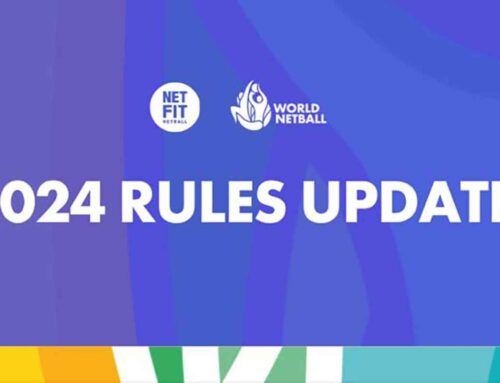Becoming a netball umpire is a rewarding way to get involved in the sport and contribute to its smooth and fair execution. Here are the steps to become a netball umpire:
- Understand the Game: Start by having a deep understanding of the rules, regulations, and mechanics of netball. Study the official Netball Rules published by the International Netball Federation (INF) to familiarise yourself with the game. All England Netball keeps its website up-to-date with all the latest rule changes.
- Attend Umpire Training: Many netball associations and organizations offer umpire training courses. Look for training programs in your area or contact your local netball association to find out about upcoming courses. These courses cover rules, positioning, signaling, and practical umpiring experience.
- Register with a Netball Association: Join a local netball association or club, if you’re not already a member. Becoming a member can provide you with access to training, mentorship, and opportunities to practice your umpiring skills.
- Learn Umpire Signals: Familiarise yourself with the various signals used by netball umpires to communicate decisions and instructions during a game. Proper signaling is crucial for effective communication with players and officials.
- Practice Officiating: Start by officiating lower-level games, such as school or community matches. This will give you practical experience and help you build your confidence as an umpire.
- Get Feedback: Seek feedback from experienced umpires or mentors after officiating games. They can provide valuable insights and guidance for improvement.
- Stay Updated: Netball rules and regulations can evolve over time. Stay updated by attending rule clinics, workshops, and seminars. Joining a network of fellow umpires can also help you stay informed about rule changes and best practices.
- Obtain Umpiring Equipment: You will need some basic umpiring equipment, including a whistle, a rulebook, a timer, a pen, and a notebook for recording game information.
- Gain Experience: As you gain more experience and confidence, you can work your way up to officiating higher-level games, including regional and national competitions.
- Seek Certification: Some netball organizations offer certification or grading systems for umpires. Earning a certification can be a valuable recognition of your skills and dedication to the sport.
- Build a Professional Reputation: Be punctual, fair, and respectful when officiating games. Building a professional reputation as a reliable and fair umpire can lead to more opportunities and higher-level assignments.
- Stay Calm and Objective: Umpires must remain calm, composed, and objective, even in intense or challenging situations. Your role is to ensure fair play and enforce the rules consistently.
- Network: Network with other umpires, coaches, and officials within the netball community. Building relationships can lead to more opportunities and mentorship.
Becoming a skilled netball umpire takes time and dedication, but it can be a fulfilling way to contribute to the sport and become an integral part of the netball community. Remember that continuous learning and improvement are essential aspects of becoming a successful umpire.
If you are interested in finding out more from the Medway netball league and how we can support your journey then please get in touch with Michelle Ray by emailing medwaynetball@outlook.com








Follow us: Senior League